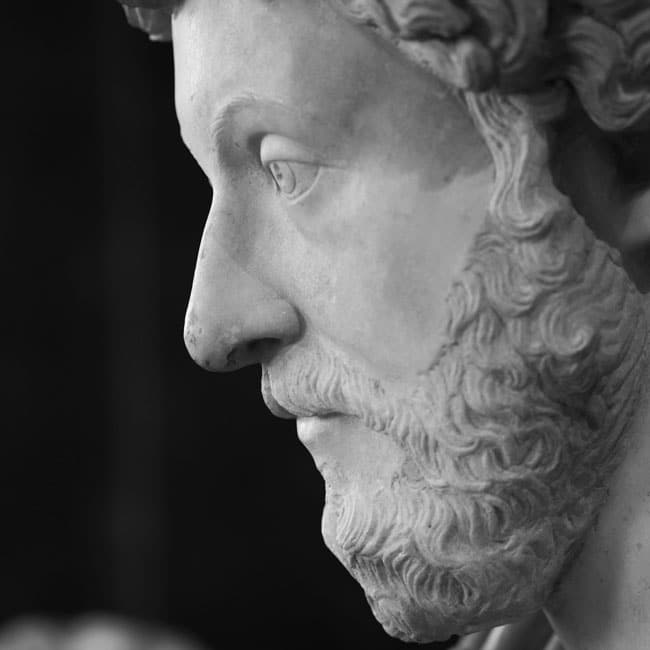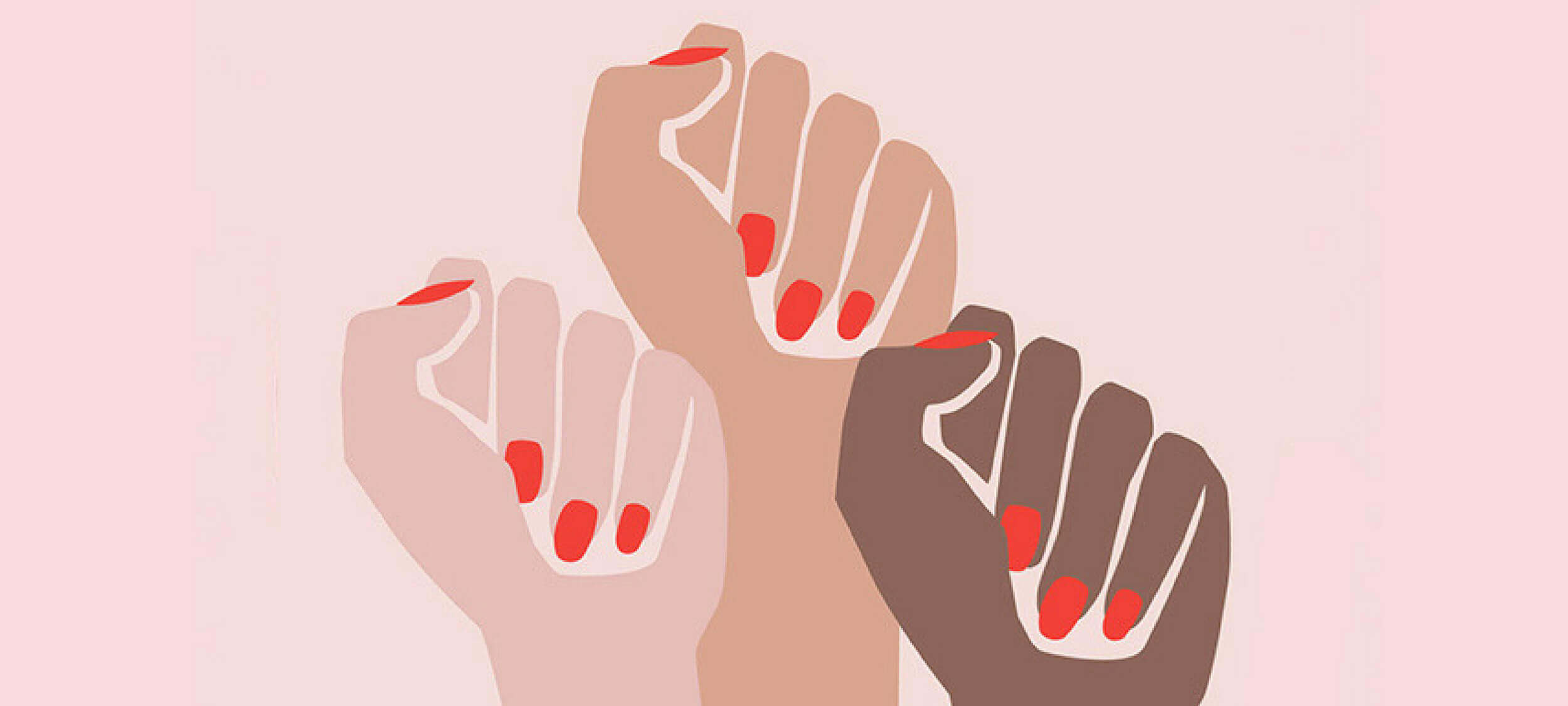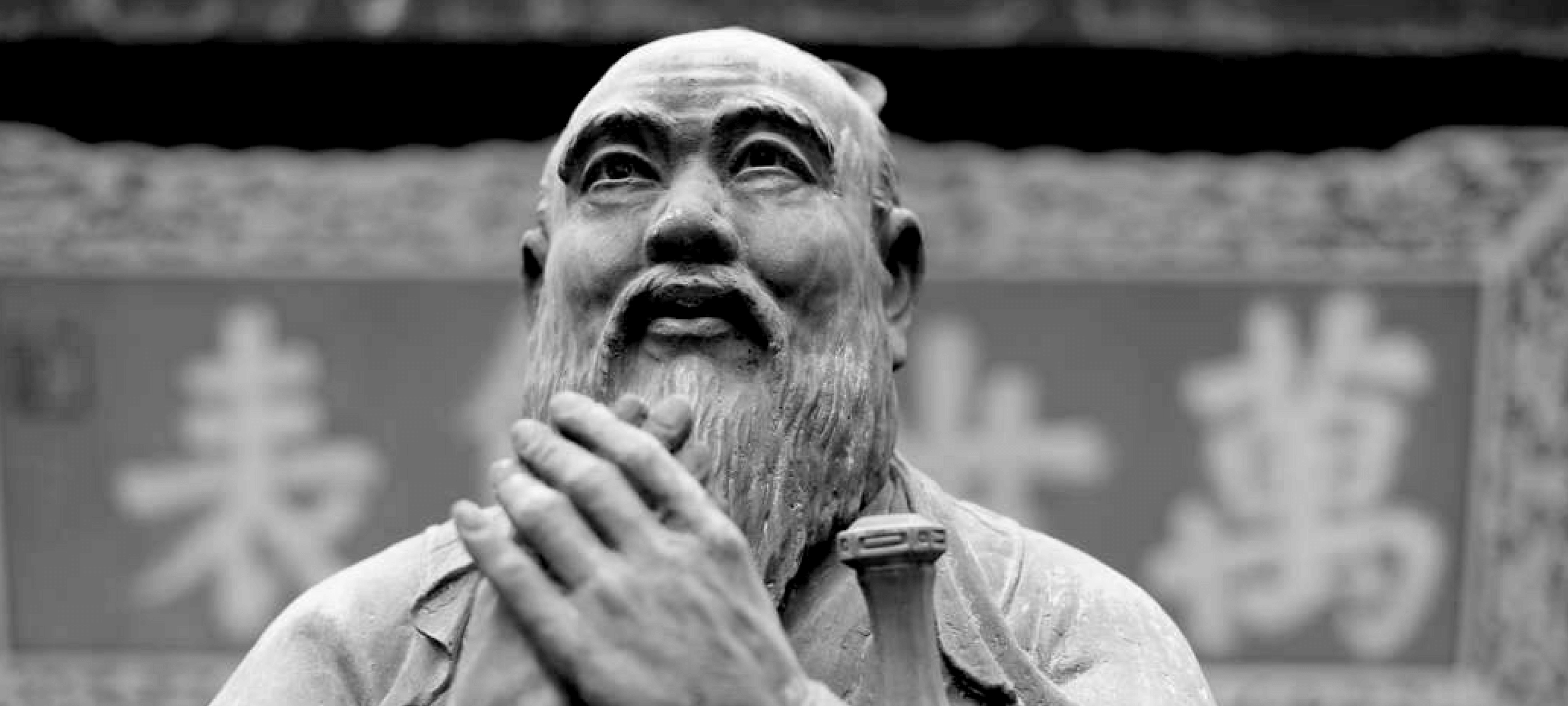New framework for trust and legitimacy

New framework for trust and legitimacy
Opinion + AnalysisBusiness + Leadership
BY The Ethics Centre 17 AUG 2018
In our report The Trust, Legitimacy & the Ethical Foundations of the Market Economy, we outline why legitimacy is more important than trust to the success of Australian companies and must be underpinned by an ethical framework.
It’s a distinction between trust and legitimacy that must be understood by corporations today who are facing a precipitous decline in levels of public trust. Trust is wholly dependant on legitimacy, which can only be maintained when performance is linked to a legitimate purpose and guided by a core ethical framework. While trust in corporations, can be compensated for by increased surveillance, legitimacy once lost, cannot be recovered at any cost.
This report draws on philosophical thinking to identify a minimum threshold of four fundamental values and principles companies must meet to maintain legitimacy: respect people, do no harm, be responsible, and be transparent and honest.
Dr Simon Longstaff AO, The Ethics Centre’s Executive Director and co-author of the paper says “The privileges of incorporation and limited liability were justified by a broad appeal to the common good. If those privileges are to be preserved, then it may be time to establish a new, core ethical foundation for corporations.”
“This framework must enable agility and protect against the risks of poor decision-making. An alternative and complementary approach to more compliance is to establish a values and principles framework that guides rather than dictates decision-makers.”
The report includes threshold indicators for the four fundamental values and principles identified to help companies undertake a legitimacy self-assessment.
The full report can be accessed here: trustandlegitimacy.com.au
Ethics in your inbox.
Get the latest inspiration, intelligence, events & more.
By signing up you agree to our privacy policy
You might be interested in…
Opinion + Analysis
Business + Leadership
Sell out, burn out. Decisions that won’t let you sleep at night
Opinion + Analysis
Business + Leadership
Following a year of scandals, what’s the future for boards?
Explainer, READ
Business + Leadership
Ethics Explainer: Moral hazards
Opinion + Analysis
Business + Leadership, Relationships, Society + Culture
Renewing the culture of cricket
BY The Ethics Centre
The Ethics Centre is a not-for-profit organisation developing innovative programs, services and experiences, designed to bring ethics to the centre of professional and personal life.
How to break up with a friend

How to break up with a friend
Opinion + AnalysisHealth + WellbeingRelationships
BY Aisyah Shah Idil The Ethics Centre 16 AUG 2018
If your friendship is a battlefield, you’ve got to know when to wave the white flag. How do you break up with a friend – ethically?
It might’ve been a slow fade after leaving high school. A messy split over unpaid bills. Maybe it was an awkward part at the airport, or a text silence that lasted a few months longer than usual.
Though not as lamented as ending a romance, ending a friendship can be just as painful. Maybe even more. While some of that is because of the hurt and disappointment of any unfulfilling relationship, another part can be attributed to its ambiguity.
The due process owed to an ex (counselling, teary conversations, logical explanations to well-meaning buddies and family) doesn’t exist for the friendships in our lives. If we want to break up with a friend, how do we do it ethically?
If you’re keen to rip off the friendship band-aid, keep reading. Here are some questions our Ethi-call counsellors would ask to help you act in line with your morals and values.
1. What is the purpose of friendship?
Let’s get back to basics. Asking yourself what a good friendship looks like can help you see if there’s a disconnect between what you’d like it to be and what it really is.
A good friendship could be one where you:
- Love and accept each other
- Are role models for each other’s children
- Feel safe expressing your honest thoughts
- Feel grateful that you share each other’s lives
If any of these questions cause discomfort, maybe your friendship has crossed a line it shouldn’t have. What is your duty to yourself? Is it fair to expect these things?
2. How could you create the least harm and most benefit?
Owning that your needs aren’t being met is important. But equally as important are the needs your friend is owed in a reciprocal relationship.
- What are your obligations to your friend?
- Have you any part to play in this?
- What would a wise person suggest?
Every relationship takes effort. Part of loving someone, warts and all, is acknowledging the effort is worth it. But when that isn’t true, a breakup may not be the only way to deal with it. Consider if your actions are going to cause more benefit than harm – to all the people involved.
- What are the consequences (of a friendship breakup)?
- Is doing nothing an option? If so, what would be your tipping point?
- What will the lasting impact be?
A breakup isn’t the end of anyone’s story. People carry these formative experiences with them and may do so for the rest of their lives.
3. How can you preserve and prioritise dignity?
If you’ve considered all this and still think you need to end the friendship, remember to be kind. Considering why you were friends in the first place means this transition isn’t about kicking anyone when they’re down.
How will you break up? Does your friendship lend itself to a face-to-face conversation or is it better through email? Is one session or message enough or are more required?
Your friend might not agree with what you consider to be good and right, but handling such a delicate situation in a way that is in line with your moral character might be one of your greatest accomplishments.
Some positive outcomes might even eventuate, such as:
- Renewal of your friendship and commitment to each other
- Knowing that you both did your best
- Revelation in self-knowledge and commitment to personal growth
- Speaking well of each other to mutual friends (and meaning it)
- Shared sense of closure and grief
Friendships and relationships don’t exist in vacuums. Whether good or bad, a history of contact with each other comes with its own particular language, traditions and memories. None of us are the centre of the universe, and believing so runs counter to the reality of multiple subjective experiences. Continuing on that path can not only make it harder for you to be a friend, but for you to be fully human.
Even if it wasn’t love, you shared each other’s lives. And that’s always worth respecting.
If you or someone you know is at risk of harm or feeling suicidal, get help immediately. Call Lifeline 13 11 14 or 000 if life is in danger.
Ethics in your inbox.
Get the latest inspiration, intelligence, events & more.
By signing up you agree to our privacy policy
You might be interested in…
Opinion + Analysis
Health + Wellbeing, Relationships
Anthem outrage reveals Australia’s spiritual shortcomings
Explainer
Relationships
Ethics Explainer: The Sunlight Test
Opinion + Analysis
Business + Leadership, Health + Wellbeing, Relationships
Office flings and firings
Opinion + Analysis
Society + Culture, Relationships
Stoicism on Tiktok promises happiness – but the ancient philosophers who came up with it had something very different in mind
BY Aisyah Shah Idil
Aisyah Shah Idil is a writer with a background in experimental poetry. After completing an undergraduate degree in cultural studies, she travelled overseas to study human rights and theology. A former producer at The Ethics Centre, Aisyah is currently a digital content producer with the LMA.
BY The Ethics Centre
The Ethics Centre is a not-for-profit organisation developing innovative programs, services and experiences, designed to bring ethics to the centre of professional and personal life.
Are diversity and inclusion the bedrock of a sound culture?

Are diversity and inclusion the bedrock of a sound culture?
Opinion + AnalysisBusiness + Leadership
BY Alison Woolsey The Ethics Centre 14 AUG 2018
We need to think about diversity in the workplace beyond gender, argues Alison Woolsey, Director of Diversity & Inclusion at Clayton Utz, a member of The Ethics Alliance.
In December 2017, Chartered Accountants Australia NZ, The Ethics Centre, Governance Institute of Australia, and Institute of Internal Auditors released a publication titled Managing Culture – A good practice guide.
Inspired by the discussion, I wondered how important the link between diversity and inclusion (“D&I”) and a sound culture in which ethical decision making is a given? Being able to point to clear evidence of a link could only advance the case for D&I in our organisations and help address any resistance to change.
A lot has changed in the Australian market. In spite of, and perhaps because of, the Hayne Royal Commission and its fallout, the connection is worth exploring. It’s a topic that has been investigated by others in the past – certainly with a gender diversity focus. For example:
- Professor Robert Wood of the University of Melbourne’s Centre for Ethical Leadership, summarised several articles and studies linking more women on boards and in senior management with improved risk management and corporate governance
- The above paper references a study which found Fortune 500 companies with a higher percentage of women on their board of directors were more likely to be on Ethisphere Institute’s list of the World’s Most Ethical Companies.
- ‘The Lehman Sisters Hypothesis’, a study that concludes empirical literature backs the claim “more gender diversity in finance, and particularly at the top would help to reduce some of the behavioural drivers behind the crises”.
A little less on point, but worth noting as it often comes up in gender diversity discussions, is John Gerzema and Michael D’Antonio’s 2013 book, The Athena Doctrine: How Women (and the Men Who Think Like Them) Will Rule the Future. It offered a global survey of 64,000 people and revealed that two thirds felt the “world would be a better place if men thought more like women”.
What I would like to focus on here, however, are two key and interrelated theses around diversity and inclusion and their role in driving workplace culture:
- Diverse teams drive better decision making.
- Inclusive workplaces inspire better team performance (as well as employee satisfaction, success and security).
If these theses hold true (and I consider each in more detail below), the unavoidable conclusion could be that D&I helps shape an organisation’s culture for the better, and will be increasingly valued – and even demanded – by boards and investors as corporate governance rules are strengthened and companies’ social licences to operate come under increased scrutiny.
Diversity is a trigger for better decision making
Much is written about the “value of diverse teams” and “diversity of thinking”. Many leaders and organisations use the expressions liberally when promoting their diversity policies. But do we really understand what these expressions mean?
In her book, Which Two Heads Are Better Than One, Australian author Juliet Bourke acknowledges the collective intelligence that diverse teams can offer, but debunks any theory that it’s easy to achieve through simple gender balance and diversity of background.
Bourke introduces several enablers of diversity of thinking. These include the composition of any group and the process they use to think and debate. Gender balance in a group, she says, “promotes psychological safety and more conversational turn-taking, thereby encouraging people to speak up, offer their views, and elaborate on the ideas of others”. Racial diversity “triggers curiosity, causing people to ask more questions, make fewer assumptions, listen more closely, and process information more deeply”. Age and geographic location also play a role.
In addition to this, we need to consider more direct factors – firstly, diversity of approach to problem solving. Bourke identifies six key individual approaches to problem solving but notes we tend to focus on two in particular. She says that by deliberately taking a more balanced approach, groups report they reduced blind spots and “were able to develop more robust solution” and moreover “followers report greater faith in the ultimate solution”.
The second direct influence on diversity of thinking comes from the mix of functional roles such as general counsel, chief risk officer, and chief HR officer. These executive positions expose members to different domains of knowledge and social networks, Bourke says.
This theory challenges the simplicity of the proposition that having women in a group mitigates risk. Australian academic Cordelia Fine similarly dismisses the existence of any gender gap in risk taking in her 2016 book, Testosterone Rex. So too does Elizabeth Sheedy, who concludes in a 2017 study that senior female bankers don’t conform to stereotypes and are just as ready to take risks.
This rich research linking gender diversity and improved business performance suggests organisations also need to consider a wider range of diversity forms beyond women to men ratios. When you begin to grasp the complexity of optimal diversity, you begin to realise the opportunities and value that teams can deliver or destroy.
Inclusion and workplace performance
Achieving the ideal diversity mix in any group is no mean feat. However, a group can still underperform if its members do not feel included.
According to the Diversity Council of Australia, inclusion occurs when a mix of people are respected, connected, progressing, and contributing to organisational success. Deloitte’s HR research body, Bersin, shows organisations with inclusive cultures are six times more likely to be innovative, anticipate change, and respond effectively, and twice as likely to meet or exceed financial targets.
We see evidence that inclusion is associated with being treated fairly and respectfully, being valued for one’s uniqueness and sensing group belonging. The Deloitte Inclusion Maturity Model identifies the highest level of inclusion as being when people report feeling both psychologically safe and inspired to do their best work. At a more granular level, this is about people feeling (or leaders encouraging people to feel) they can contribute in a meeting, have a voice in decisions affecting them, and can disagree or challenge group decisions.
Leaders are instrumental in creating a culture of inclusion. Diversity commentators and practitioners largely agree on a common set of leadership capabilities including being collaborative, accountable, open and curious, a champion of diversity, and relational. A big piece in the discussion on inclusive leadership is the importance of counteracting biases and assumptions in decision making. In recent years, not only have we seen a growing level of awareness of unconscious biases but also a push to explore practical ways (policies, processes and structures) to mitigate against them.
Positive traits of an inclusive leader include being particularly mindful of personal and cultural biases like confirmation bias and groupthink. Juliet Bourke also highlights the importance of leaders being cognisant of the situations and factors such as time pressures and fatigue which can cause them to be vulnerable to such biases.
As several authors have argued, there was potential for diversity of thinking and good decision making in the Enron board, but the decisions “concerned matters of high complexity, difficulty and moral uncertainty” and ultimately it succumbed to groupthink, says Bourke.
Does diversity and inclusion lead to sound culture?
If we have ideal diversity in a team and have cultivated inclusion through good leadership, does a sound organisational culture necessarily follow?
Logically, yes. We’ve canvassed positive outcomes such as good decision making, effective team work, psychological safety, and innovation. We’ve considered the impact of leaders being more open and curious, conscious of biases, and accountable. In both the Managing Culture paper and APRA’s report on the Commonwealth Bank, we see references to the need for improved behaviours of boards and senior leadership along the lines of these themes. If D&I doesn’t at least influence ethical behaviour or underpin the concept of an ethical framework, it would be easy to argue inclusive leadership can facilitate embedding an ethical framework.
McKinsey in its 2018 update suggests that, for many companies, D&I is a “matter of license to operate”. This is a theme at the heart of proposed changes to the ASX Corporate Governance Council’s Principles and Recommendations. In a substantial redraft of principle 3, the current words of “act ethically and responsibly” become “instil and continually reinforce a culture across the organisation of acting lawfully, ethically and in a socially responsible manner”. The ASX says that “preserving an entity’s social licence to operate requires the board and management of a listed entity to have regard to the views and interests of a broader range of stakeholders than just its security holders, including employees”. It goes on to suggest this may include, by way of example, “offering employment to people with disability or from socially disadvantaged groups in society”.
On one view this could be saying good culture drives greater levels of diversity, and not vice versa. What’s interesting though is the earlier editions of the Principles and Recommendations also included diversity under principle 3. It was then relocated in 2014 to Principle 1: “lay solid foundations for management and oversight”. In my view, D&I sits comfortably under both principles – a recognition of it being business critical but also critical for ‘good’ or ‘right’ decisions.
More reflection on the point may be required but I think investors and our regulators should care about what organisations are doing to make D&I a priority in the way they conduct business and as employers. D&I may be an undervalued lever to promote positive change in business behaviours and workplace cultures in Australia. The world’s largest asset manager BlackRock has identified board diversity as a “stewardship priority”. Larry Fink recently wrote in his annual letter to CEOs:
“We also will continue to emphasize the importance of a diverse board. Boards with a diverse mix of genders, ethnicities, career experiences, and ways of thinking have, as a result, a more diverse and aware mindset. They are less likely to succumb to groupthink or miss new threats to a company’s business model. And they are better able to identify opportunities that promote long-term growth.” – Larry Fink
It makes sense to continue to make the case for diversity and inclusion as being a driver of positive change – for business, and for the community.
Alison Woolsey is director of Diversity & Inclusion at Clayton Utz, a member of The Ethics Alliance.

This article was originally written for The Ethics Alliance. Find out more about this corporate membership program. Already a member? Log in to the membership portal for more content and tools here.
Ethics in your inbox.
Get the latest inspiration, intelligence, events & more.
By signing up you agree to our privacy policy
You might be interested in…
Opinion + Analysis
Business + Leadership, Relationships
The twin foundations of leadership
Opinion + Analysis
Society + Culture, Business + Leadership
How to tackle the ethical crisis in the arts
Opinion + Analysis
Business + Leadership
6 Myths about diversity for employers to watch
Opinion + Analysis
Business + Leadership, Science + Technology
Meet Aubrey Blanche: Shaping the future of responsible leadership
BY The Ethics Centre
The Ethics Centre is a not-for-profit organisation developing innovative programs, services and experiences, designed to bring ethics to the centre of professional and personal life.
Why your new year's resolution needs military ethics

Why your new year’s resolution needs military ethics
Opinion + AnalysisHealth + WellbeingRelationships
BY The Ethics Centre 13 AUG 2018
Weight loss goals and the laws of armed conflict seem pretty far removed. But stick with us! Military ethics provide useful principles to test the worth of our new year’s resolutions.
The ethics of war are based on making sure the inevitable harm, pain and suffering caused by violence is minimised as much as possible. Most resolutions also involve some pain and suffering. After all, we don’t need resolve to do what’s easy! So let’s apply these principles of warfare to the hardships of our resolutions and check if they’re are morally justified.
Just war theory, the most common approach to the ethics of war, says war is justified only if it satisfies a set of conditions. These include:
Just cause
War is only just when it is fought in response to a serious violation of state or human rights (basically, because war causes death and destruction it has to be responding to a grievous offence).
Right intention
The declaration of war is not motivated by private, self-interested or vicious intentions but out of a desire to bring about a just outcome.
Legitimate authority
Only the leader or leaders of a political community have the right to declare war.
(Macro) proportionality
The peace the war aims to create has to be preferable to the way the world would be if no war was fought (a nuclear war will almost always be disproportionate).
Last resort
Are there less harmful measures than war which might bring about peace?
Probability of success
Do not undertake the pain and suffering of war if there is no chance of winning, otherwise lives are wasted in vain.
(Micro) proportionality
The benefits gained from a military operation must outweigh the harms it inflicts.
Discrimination
Only combatants may be targeted by military attacks. Civilians are off limits.
Good goal
An ethical resolution will aim to achieve something good (health, travel, education). Don’t aim to do something you know to be bad (“This year I resolve to make profits at any cost”).
Right intention
Is your resolution motivated by a genuine desire for self-improvement? Or is it motivated by shame, peer pressure, greed, vanity or fear? If the latter is true, it might be worth considering whether it’s really a resolution worth making.
Is your resolution motivated by a genuine desire for self-improvement? Or is it motivated by shame, peer pressure, greed, vanity or fear?
Accept your limits
You only have the ‘authority’ to make resolutions for things within your control. Don’t resolve to get a promotion at work. Instead, resolve to reinvigorate your attitude at work so your application for promotion has the best chance of success. But remember, getting the promotion is outside your control.
Holistic improvement
Make sure you will be a better person overall after succeeding in your resolution. You might be able to run a marathon, but make sure it isn’t so detrimental to your health, relationships, work or other interests that you’re worse-off overall.
Avoid drastic measures
Have you tried less intense measures to achieve your goals? Maybe before you sign up for a 10 day silent yoga retreat you could try signing up for a weekly class and see if it helps.
Probability of success
Set realistic goals you can actually achieve. If you and your partner aim to spend more time together after three date nights in the last year, resolving to have a weekend away once a fortnight might be a bit extreme. Be honest to avoid setting yourself up for failure and making the effort and sacrifices you make futile.
Cost/benefit analysis
Is the inconvenience, expense or pain of your resolution worth it for the goal you are trying to achieve? Trying to have a body like Chris Hemsworth might be more trouble than it’s worth.
Own your resolution
Your resolution is your resolution – everyone except you is an innocent bystander! If you’ve decided to go vegetarian, that’s fine. Insisting everyone in your share house skips on meat to suit your new diet isn’t.
So there you have it – your guide to an ethical new year’s resolution with help from military ethics. These steps won’t guarantee your resolution is successful but they will guarantee it’s a resolution worth making. For tips on how to form the resolve, perseverance and courage it takes to stick to your new commitment, you might want to talk to a soldier.
Ethics in your inbox.
Get the latest inspiration, intelligence, events & more.
By signing up you agree to our privacy policy
You might be interested in…
Opinion + Analysis
Politics + Human Rights, Relationships, Society + Culture
Of what does the machine dream? The Wire and collectivism
Explainer
Relationships
Ethics Explainer: Plato’s Cave
Opinion + Analysis
Relationships
5 lessons I’ve learnt from teaching Primary Ethics
Opinion + Analysis
Relationships
Now is the time to talk about the Voice
BY The Ethics Centre
The Ethics Centre is a not-for-profit organisation developing innovative programs, services and experiences, designed to bring ethics to the centre of professional and personal life.
The Royal Commission has forced us to ask, what is business good for?

The Royal Commission has forced us to ask, what is business good for?
Opinion + AnalysisBusiness + Leadership
BY The Ethics Alliance The Ethics Centre 13 AUG 2018
AMP Capital was applauded last year when it committed to selling $600 million worth of shares that did not meet its ethical guidelines. However, barely a year after announcing it was getting rid of its direct and indirect interests in tobacco and landmines, AMP was itself ejected into a basket of “untouchables”.
Australian Ethical announced in May it was divesting itself of AMP shares in the wake of searing revelations from the Financial Services Royal Commission.
Billions of dollars were wiped from the value of AMP after the public and investors discovered the wealth manager charged “fees for no service” and steered people into investments that rewarded their financial planners, at the expense of the clients.
Head of ethics research at Australian Ethical, Dr Stuart Palmer, says there were a number of reasons behind the decision to divest, “… but specifically, a senior decision made within the financial planning business to charge clients fees for services they weren’t receiving. They knew it was wrong, they knew it was illegal.
“There were people in the business saying we need to stop doing this, and they kept doing it at a senior level”, he says.
The Royal Commission into Financial Services has been exposing the rot eating away at some of our biggest and most powerful corporations and has reenergised an ongoing debate about what is the actual purpose of business and who it serves.
Palmer says legal cases in the US established shareholder primacy a century ago, with the primary responsibility of business interpreted as creating profits for shareholders.
“Since then, and before then, there has been a debate about whether that is right, whether there are other ways of thinking about corporations having independent interests and responsibilities to all their stakeholders, including shareholders, but also employees, customers, suppliers and society”, says Palmer.
“None is necessarily dominant over the others, but they need to be balanced in the interests of all.”
This discussion about the role of the corporation is being weighed up at all levels, including by the chairman of NAB, Ken Henry, who delivered a speech in March saying that it was not enough for companies to use the “pursuit of profit” to explain away their contribution to negative consequences, such as greenhouse gas emissions and other forms of pollution.
“If that’s the best we can do, then we shouldn’t wonder that we find it so difficult to occupy positions of trust and respect in society. Neither should we wonder that politicians of all political colours have such an uneasy relationship with us”, he told a gathering of the Australian Institute of Company Directors.
This was a debate that the Commonwealth Bank non-executive director, Harrison Young, was alluding to when he wrote last year, “banks should not be profit-maximising institutions. They have duties to the community that oblige them to forego a certain amount of upside”.
Judith Fox, the CEO of the Australian Shareholders Association, says she is aware of increasing numbers of companies and boards having this discussion.
“I’m seeing a lot of conversations that ultimately are all about how something needs to change in the way we operate”, she says.
“I think we are one of those transition periods where there has been a social norm that the purpose of a company is shareholder return and that has been accepted in markets worldwide for four decades”, she says, adding the realisation that companies should stand for more than just profits may come as a surprise to people whose knowledge of economics does not extend further back than US economist Milton Friedman’s pronouncement in 1962 that there is only one social responsibility of business and that is to make money.
Friedman wrote in Capitalism and Freedom:
“There is one and only one social responsibility of business – to use its resources and engage in activities designed to increase its profits so long as it stays within the rules of the game, which is to say, engages in open and free competition without deception or fraud.”
Fox says the current debate about the role of the corporation is a return to the concept, popular in the 1930s – that business had a social role to play as well.
Professor of Human Rights Law at Sydney University, David Kinley, agrees that many people’s attitudes are formed by what they have experienced in the past 20 years.
“It is what they have seen since the 80s, which has been a long – until 2008 [the start of the Global Financial crisis] – largely uninterrupted boom period.”
Kinley says Scottish economist and philosopher Adam Smith would be horrified to see the societal cost of rampant free marketeers.
Smith had written in The Wealth of Nations, nearly 250 years ago:
“… that individual acts of economic self-interest combine, through the ‘invisible hand’ of market forces, to further the best interests of society at large”.
Says Kinley, “So, he certainly would be turning in his grave to see all this wealth, so much of it is now concentrated in the hands of the few. Yes, we are better off than we were 200 years ago. Unquestionably. But by God, it’s been at a big cost to the notions of equity and fairness.
“And [investor] Warren Buffett says often – and he is the second richest man in the world – he said he is amazed there are not more people with pitchforks heading for the rich like him because he can’t see how they don’t appreciate this appalling inequality.”
Kinley, author of Necessary Evil: How to Fix Finance by Saving Human Rights, says he is not advocating some sort of Socialist revolution, but remaking the “financial, commercial, corporate neoliberal system that we now have one that works better for people as a whole”.
“If you don’t do that, you have a bubbling up of disquiet, of resentment, that no matter what happens – even things like the global financial crisis – the rich, the powerful, the banking, the financial system, they sail through it, on the back of public funds that bailed them out because they had to be saved. When people ordinary people look at that, they say, ‘How is that fair?’.
“So you get the reaction of, ‘Well, let’s vote in somebody who is willing to drain the swamp, you know, shake up the area and I don’t care if he’s mad or narcissistic or a nincompoop. You put him in there in the White House and just see what happens.’
“These sorts of reactions are almost desperation. I don’t think they are logical, I don’t think they are at all laudable, but you see why people are doing it.”
While there is evidence ethical investments outperform the average large-cap Australian share funds over three, five and 10 year time horizons, Kinley maintains corporations and their executives should be ethical because it is the right thing to do, not because it might make them money.
“What I would suggest what all of us want to do in the morning, truly, is to stand in front of the mirror as you’re brushing your teeth and say, ‘I’m proud of what I do or at least I can see why I do what I do and it is something that is worthwhile’.
“You don’t want to look in the mirror and think, ‘Oh I’m making a lot of dosh, but Geez it is dodgy’.”

This article was originally written for The Ethics Alliance. Find out more about this corporate membership program. Already a member? Log in to the membership portal for more content and tools here.
Ethics in your inbox.
Get the latest inspiration, intelligence, events & more.
By signing up you agree to our privacy policy
You might be interested in…
Opinion + Analysis
Business + Leadership
Managing corporate culture
Opinion + Analysis
Business + Leadership
Georg Kell on climate and misinformation
Opinion + Analysis
Business + Leadership
A radical act of transparency
Opinion + Analysis
Business + Leadership, Health + Wellbeing
Tips on how to find meaningful work
BY The Ethics Alliance
The Ethics Alliance is a community of organisations sharing insights and learning together, to find a better way of doing business. The Alliance is an initiative of The Ethics Centre.
BY The Ethics Centre
The Ethics Centre is a not-for-profit organisation developing innovative programs, services and experiences, designed to bring ethics to the centre of professional and personal life.
How to help your kid flex their ethical muscle

How to help your kid flex their ethical muscle
Opinion + AnalysisRelationships
BY Victoria Whitaker The Ethics Centre 24 JUL 2018
Kids can be cruel. When they are arbitrarily mean to their own friends, ethical reflection can help. Victoria Whitaker talks us through building your child’s ethical muscle in testing times.
My daughter came home to me in tears last night. She shuddered, eyes wet, and a waterfall connected her nose to her mouth as she explained to me that her best friend had decided she didn’t like her anymore and she was no longer allowed to play in their small group of friends.
“Mummy, I am so sad. Who am I going to play with? Why doesn’t she like me?”
It’s cruelty at its peak. Of course, there is no reason. It’s a power play that seems to happen far too early.
“I know”, she said. “Can I invite her over to play? Then she will like me again”.
What do I do? Maybe having her over will help. But who wants friends like that?
I want my daughter to know her worth. I wanted her to consider this dilemma through the different ethical lenses. We talked.
I asked her to think about the consequences of having who she considered her best friend over. Yes, you might reconnect. But she might also find out how to push you around. And is this how you want your friends to treat you? Will you let all your friends do this? These questions relate to consequentialism, a mode of ethical thought that considers outcomes and consequences.
I also asked her what rights she had in this friendship. What things could she expect in friendship? And what duties do we have to our friends – in all friendships, not just this one? These questions relate to deontology, an ethical theory that prioritises our promises, as well as codes and rules over considering outcomes.
I asked her about the types of relationships she wants. Which relationships were most important to her and why? These questions relate to an ethics of care.
I asked her what sort of friend she would like to be. She told me she liked to have fun, to explore and play together, and valued being kind and caring. This question relates to virtue ethics, a type of thinking that values character and the type of person we aspire to be.
I asked her about the purpose of friendship and why it existed. What things were important about friendship to her? These questions relate to teleology, an ethical theory that considers the purpose of things.
And then we discussed in reflection of all these questions, if her friend was actually the friend she wanted. We talked about whether this little girl had the qualities she wanted from friendship. And we talked about her other friends and which ones did have those qualities she wanted. We also discussed what type of friend my daughter wanted to be… what sort of person she wanted to be. You don’t need a degree in ethics to have to have these conversations with your kids. We are all more expert in this stuff than we give ourselves credit for – our children too.
Ethics isn’t just thinking and talking. It requires action. My daughter and I discussed what steps she could take next. She was still keen to be friends, but her view of the friendship had changed. Her view of herself had changed too. And as such the friendship would change – and we discussed how that was okay.
This morning as we packed her bag and got her ready for the walk to school, the world didn’t seem as heavy as it was last night. And she seemed to carry herself just a little bit taller.
Ethics in your inbox.
Get the latest inspiration, intelligence, events & more.
By signing up you agree to our privacy policy
You might be interested in…
Opinion + Analysis
Politics + Human Rights, Relationships, Society + Culture
Of what does the machine dream? The Wire and collectivism
Big thinker
Relationships
Big Thinker: bell hooks
Opinion + Analysis
Relationships, Science + Technology
To fix the problem of deepfakes we must treat the cause, not the symptoms
Opinion + Analysis
Relationships
Power and the social network
BY Victoria Whitaker
Victoria has oversight of strategy, operations and business development for The Ethics Centre’s consulting and education services. She joined The Ethics Centre in 2010 and has a background in corporate responsibility and sustainability, working in Australia and the UK in the areas of strategy, governance, policy, research, education, monitoring and reporting.
BY The Ethics Centre
The Ethics Centre is a not-for-profit organisation developing innovative programs, services and experiences, designed to bring ethics to the centre of professional and personal life.
Ethics Explainer: The Turing Test

Much was made of a recent video of Duplex – Google’s talking AI – calling up a hair salon to make a reservation. The AI’s way of speaking was uncannily human, even pausing at moments to say “um”.
Some suggested Duplex had managed to pass the Turing test, a standard for machine intelligence that was developed by Alan Turing in the middle of the 20th century. But what exactly is the story behind this test and why are people still using it to judge the success of cutting edge algorithms?
Mechanical brains and emotional humans
In the late 1940s, when the first digital computers had just been built, a debate took place about whether these new “universal machines” could think. While pioneering computer scientists like Alan Turing and John von Neumann believed that their machines were “mechanical brains”, others felt that there was an essential difference between human thought and computer calculation.
Sir Geoffrey Jefferson, a prominent brain surgeon of the time, argued that while a computer could simulate intelligence, it would always be lacking:
“No mechanism could feel … pleasure at its successes, grief when its valves fuse, be warmed by flattery, be made miserable by its mistakes, be charmed by sex, be angry or miserable when it cannot get what it wants.”
In a radio interview a few weeks later, Turing responded to Jefferson’s claim by arguing that as computers become more intelligent, people like him would take a “grain of comfort, in the form of a statement that some particularly human characteristic could never be imitated by a machine.”
The following year, Turing wrote a paper called ‘Computing Machinery and Intelligence’ in which he devised a simple method by which to test whether machines can think.
The test was a proposed a situation in which a human judge talks to both a computer and a human through a screen. The judge cannot see the computer or the human but can ask them questions via the computer. Based on the answers alone, the human judge had to determine which is which. If the computer was able to fool 30 percent of judges that it was human, then the computer was said to have passed the test.
Turing claimed that he intended for the test to be a conversation stopper, a way of preventing endless metaphysical speculation about the essence of our humanity by positing that intelligence is just a type of behaviour, not an internal quality. In other words, intelligence is as intelligence does, regardless of whether it done by machine or human.
Does Google Duplex pass?
Well, yes and no. In Google’s video, it is obvious that the person taking the call believes they are talking to human. So, it does satisfy this criterion. But an important thing about Turing’s original test was that to pass, the computer had to be able to speak about all topics convincingly, not just one.
In fact, in Turing’s paper, he plays out an imaginary conversation with an advanced future computer and human judge, with the judge asking questions and the computer providing answers:
Q: Please write me a sonnet on the subject of the Forth Bridge.
A: Count me out on this one. I never could write poetry.
Q: Add 34957 to 70764.
A: (Pause about 30 seconds and then give as answer) 105621.
Q Do you play chess?
A: Yes.
Q: I have K at my K1, and no other pieces. You have only K at K6 and R at R1. It is your move. What do you play?
A: (After a pause of 15 seconds) R-R8 mate.
The point Turing is making here is that a truly smart machine has to have general intelligence in a number of different areas of human interest. As it stands, Google’s Duplex is good within the limited domain of making a reservation but would probably not be able to do much beyond this unless reprogrammed.
The boundaries around the human
While Turing intended for his test to be a conversation stopper for questions of machine intelligence, it has had the opposite effect, fuelling half a century of debate about what the test means, whether it is a good measure of intelligence, or if it should still be used as a standard.
Most experts have come to agree, over time, that the Turing test is not a good way to prove machine intelligence, as the constraints of the test can easily be gamed, as was the case with the bot Eugene Goostman, who allegedly passed the test a few years ago.
But the Turing test is nevertheless still considered a powerful philosophical tool to re-evaluate the boundaries around what we consider normal and human. In his time, Turing used his test as a way to demonstrate how people like Jefferson would never be willing to accept a machine as being intelligence not because it couldn’t act intelligently, but because wasn’t “like us”.
Turing’s desire to test boundaries around what was considered “normal” in his time perhaps sprung from his own persecution as a gay man. Despite being a war hero, he was persecuted for his homosexuality, and convicted in 1952 for sleeping with another man. He was punished with chemical castration and eventually took his own life.
During these final years, the relationship between machine intelligence and his own sexuality became interconnected in Turing’s mind. He was concerned the same bigotry and fear that hounded his life would ruin future relationships between humans and intelligent computers. A year before he took his life he wrote the following letter to a friend:
“I’m afraid that the following syllogism may be used by some in the future.
Turing believes machines think
Turing lies with men
Therefore machines do not think
– Yours in distress,
Alan”
Ethics in your inbox.
Get the latest inspiration, intelligence, events & more.
By signing up you agree to our privacy policy
You might be interested in…
Opinion + Analysis
Science + Technology
The “good enough” ethical setting for self-driving cars
Opinion + Analysis
Climate + Environment, Science + Technology
The kiss of death: energy policies keep killing our PMs
Opinion + Analysis
Politics + Human Rights, Science + Technology
Who’s to blame for Facebook’s news ban?
Opinion + Analysis
Relationships, Science + Technology
With great power comes great responsibility – but will tech companies accept it?
BY The Ethics Centre
The Ethics Centre is a not-for-profit organisation developing innovative programs, services and experiences, designed to bring ethics to the centre of professional and personal life.
Calling out for justice

Calling out for justice
Opinion + AnalysisPolitics + Human RightsRelationships
BY Oscar Schwartz The Ethics Centre 19 JUL 2018
It’s probably the biggest phenomenon of calling out we’ve ever seen. On 15 October last year, in the wake of Harvey Weinstein being accused of sexual harassment and rape, actress Alyssa Milano tweeted:
“If all the women who have been sexually harassed or assaulted wrote ‘Me too.’ as a status, we might give people a sense of the magnitude of the problem.”
The phrase and hashtag ‘Me too’ powerfully resonated with women across the globe and became one of the most viral occurrences in social media history. Not only did the campaign become a vehicle for women to share their stories of sexual abuse and harassment, it had real world consequences, leading to the firing and public humiliation of many prominent men.
One of the fall outs of the #MeToo movement has been a debate about “call out culture”, a phrase that refers to the practice of condemning sexist, racist, or otherwise problematic behaviour, particularly online.
While calling out has been praised by some as a mechanism to achieve social justice when traditional institutions fail to deliver it, others have criticised call outs as a form of digital mob rule, often meting out disproportionate and unregulated punishment.
Institutional justice or social justice
The debate around call out culture raises a question that goes to the core of how we think justice should be achieved. Is pursuing justice the role of institutions or is it the responsibility of individuals?
The notion that justice should be administered through institutions of power, particularly legal institutions, is an ancient one. In the Institutes of Justinian, a codification of Roman Law from the sixth century AD, justice was defined as the impartial and consistent application of the rule of law by the judiciary.
A modern articulation of institutional justice comes from John Rawls, who in his 1971 treatise, A Theory of Justice, argues that for justice to be achieved within a large group of people like a nation state, there has to be well founded political, legal and economic institutions, and a collective agreement to cooperate within the limitations of those institutions.
Slightly diverging from this conception of institutional justice is the concept of social justice, which upholds equality – or the equitable distribution of power and privilege to all people – as a necessary pre-condition.
Institutional and social justice come into conflict when institutions do not uphold the ideal of equality. For instance, under the Institutes of Justinian, legal recourse was only available to male citizens of Rome, leaving out women, children, and slaves. Proponents of social justice would hold that these edicts, although bolstered by strong institutions, were inherently unjust, built on a platform of inequality.
Although, as Rawls argues, in an ideal society institutions of justice help ensure equality among its members, in reality social justice often comes into conflict with institutional power. This means that social justice has to sometimes be pursued by individuals outside of, or even directly in opposition to, institutions like the criminal justice system.
For this reason, social justice causes have often been associated with activism. Dr Martin Luther King Jr’s march in Montgomery, Alabama to protest unfair treatment of African American people in the courts was an example of a group of individuals calling out an unjust system, demanding justice when institutional avenues had failed them.
Calling out
The tension between institutional and social justice has been highlighted in debates about “call out culture”.
For many, calling out offends the principles of institutional justice as it aims to achieve justice at a direct and individual level without systematic regulation and procedure. As such, some have compared calling out campaigns like #MeToo to a type of “mob justice”. Giles Coren, a columnist for The Times of London, argues the accusations of harassment should be handled only by the criminal justice system and that “Without any cross-examination of the stories, the man is finished. No trials or second chances.”
But others see calling out sexist and racist behaviour online as a powerful instrument of social justice activism, giving disempowered individuals the capacity to be heard when institutions of power are otherwise deaf to their complaints. As Olivia Goldhill wrote in relation to #MeToo for Quartz:
“Where inept courts and HR departments have failed, a new tactic has succeeded: women talking publicly about harassment on social media, fuelling the public condemnation that’s forced men from their jobs and destroyed their reputations.”
Hearing voices
In his 2009 book, The Idea of Justice, economist Amartya Sen argues a just society is judged not just by the institutions that formally exist within it, but by the “extent to which different voices from diverse sections of the people can actually be heard”.
Activist movements like #MeToo use calling out as a mechanism for wronged individuals to be heard. Writer Shaun Scott argues that beyond the #MeToo movement, calling out has become an avenue for minority groups to speak out against centuries of oppression, adding the backlash against “call out” culture is a mechanism to stop social change in its tracks. “Oppressed groups once lived with the destruction of keeping quiet”, he writes. “We’ve decided that the collateral damage of speaking up – and calling out – is more than worth it.”
While there may be instances of collateral damage, even people innocently accused, a more pressing problem to address is how and why institutions we are supposed to trust are deaf to many of the problems facing women and minority groups.
Dr Oscar Schwartz is an Australian writer and researcher based in New York with expertise in tech, philosophy, and literature. Follow him on Twitter: @scarschwartz
Ethics in your inbox.
Get the latest inspiration, intelligence, events & more.
By signing up you agree to our privacy policy
You might be interested in…
Opinion + Analysis
Relationships, Society + Culture
A parade of vices: Which Succession horror story are you?
Explainer
Relationships
Ethics Explainer: Blame
Opinion + Analysis
Relationships
Paralympian pay vs. Olympian pay
Opinion + Analysis
Politics + Human Rights, Relationships
Want #MeToo to serve justice? Use it responsibly.
BY Oscar Schwartz
Oscar Schwartz is a freelance writer and researcher based in New York. He is interested in how technology interacts with identity formation. Previously, he was a doctoral researcher at Monash University, where he earned a PhD for a thesis about the history of machines that write literature.
BY The Ethics Centre
The Ethics Centre is a not-for-profit organisation developing innovative programs, services and experiences, designed to bring ethics to the centre of professional and personal life.
Big Thinker: Shulamith Firestone

Big Thinker: Shulamith Firestone
Big thinkerHealth + WellbeingRelationships
BY The Ethics Centre 18 JUL 2018
Women’s oppression comes down to biological differences – so get rid of them. If you can put a man on the moon, you make a mechanical womb and gestate a baby without a woman.
These were the arguments of Shulamith Firestone (1945—2012), writer, artist and feminist, whose book, The Dialectic of Sex, argued the structure of the biological family was primarily to blame for the oppression of women.
With a radical and uncompromising vision, she advocated for the development of reproductive technologies that would free women from the responsibilities of childrearing, dismantle the hierarchy of family life, and set the foundations for a truly egalitarian society.
The girlhood of a radical thinker
Firestone was born to an Orthodox Jewish family in Ottawa, Canada in 1945. Her mother was a Holocaust survivor that came from a lineage of rabbis and scholars, and her father was a travelling salesmen.
Firestone possessed a fierce intelligence and strong will from a young age and regularly came into conflict with the stringent gender norms that her religious father imposed. When she questioned why she had to make her brother’s bed in the morning, her father replied, “because you’re a girl.”
In the late 1960s, Firestone left home to study art in Chicago and then New York, where she joined left wing political movements and came of age intellectually. While she was free from her father’ tyranny, she saw the same sexism that had controlled her life at home across all areas of society. It was a time when women held almost no major elected positions, abortion was illegal, rape a stigma to be borne alone, and home making seen as a woman’s highest calling.
As a response to this, Firestone began studying history and feminist literature, hoping to understand the root cause of women’s oppression, which resulted in the publication of The Dialectic of Sex in 1970.
The Dialectic of Sex
While other feminist writers and philosophers proposed that the cause of women’s oppression was, at root, political and cultural, Firestone made a radical departure, positing that the inequality between men and women stemmed from fundamental biological differences – most notably that women had to carry, give birth to, and nurse babies.
This biological reality, Firestone argued, created an “unequal power distribution” within families. Because women were responsible for a child’s care, they became dependant on men to provide for them while they were unable to leave the home. This in turn gave rise to a hierarchy within the family in which babies were dependant on mothers, mothers on their husbands, and husbands on no one.
Firestone argued that over the course of human history, society itself had come to mirror the structure of the biological family and was the source from which all other inequalities developed.
Women were expected to stay at home and care for children, which held them back from becoming financially independent and achieving political agency.
If the feminist movement was to overcome male domination, it had to reckon with the fundamental biological reality that underpinned it.
“The end goal of feminist revolution must be… not just the elimination of male privilege, but of the sex distinction itself.”
While questioning the fundamental biological conditions was not conceivable in previous centuries, Firestone said the great advancements that had accrued in science and technology in the 20th century made it possible to imagine a future in which the reproductive role of women was outsourced to “cybernetic machines”. She believed if the same energy and resources were put into developing reproductive technologies as had been put into other projects, like sending a human to the moon, then it could be achieved in decades.
What held this research back, Firestone suggested, was institutional resistance from men in positions of power who did not want to disrupt the existing hierarchy.
“The problem becomes political … when one realises that, though man is increasingly capable of freeing himself from the biological conditions that created his tyranny over women and children, he has little reason to want to give this tyranny up.”
The true feminist cause, then, was to demand reproductive technology that could free women from what had previously been a biological destiny. Firestone believed if this was achieved, and reproduction was no longer the sole responsibility of women and their bodies, the family would undergo a radical restructuring, a flattening of the patriarchal hierarchy, which would then be mirrored in a more egalitarian society itself.
Brilliant and preposterous
The Dialectic of Sex caused a stir from the moment it was published. It was hard for critics to deny Firestone’s prodigious intellect, but they wrote off her ideas as too radical, too utopian, and too ridiculous to warrant serious engagement. Her theory of gender inequality was called “brilliant” and “preposterous” in the same review by one New York Times critic.
The book’s publication caused a greater rift between Firestone and her family, and her staunch line on biological inequality alienated her from some feminist groups. By the 1980s, when the backlash against radical feminism had taken hold of mainstream American culture, Firestone retreated to a small apartment in Manhattan where she spent her days painting in isolation. She was found dead in August 2012 at the age of 67.
In the 50+ years since Firestone published The Dialectic of Sex, we have seen enormous and rapid technological developments in many areas, and yet reproductive technologies like artificial wombs are still seen as an unlikely and unwanted science from a dystopian sci-fi future. Our culture, for the most part, still associates artificial wombs with the 1932 novel Brave New World, in which Aldous Huxley imagined a future where foetuses are grown in “bottles” in vast state incubators. For Huxley, the idea of severing the biological tie between mother and child was the centrepiece of his dystopian vision, the essential metaphor of a society that had become ethically set adrift.
Reading Firestone’s The Dialectic of Sex – a brilliant, passionate and uncompromising book – forces us to confront that the way technology progresses is informed by political motivations, and that science is not neutral, but can be used to reinforce and perpetuate unequal distributions of power.
Ethics in your inbox.
Get the latest inspiration, intelligence, events & more.
By signing up you agree to our privacy policy
You might be interested in…
Big thinker
Relationships
Big Thinker: Jelaluddin Rumi
Opinion + Analysis
Health + Wellbeing
Defining mental illness – what is normal anyway?
Opinion + Analysis
Relationships
Want men to stop hitting women? Stop talking about “real men”
Explainer
Relationships
Ethics Explainer: Conscience
BY The Ethics Centre
The Ethics Centre is a not-for-profit organisation developing innovative programs, services and experiences, designed to bring ethics to the centre of professional and personal life.
How to pick a good friend

How to pick a good friend
Opinion + AnalysisHealth + WellbeingRelationships
BY Aisyah Shah Idil The Ethics Centre 17 JUL 2018
Fed up with fair weather friends? A bit of ethical reflection will help you figure out which friends to pick – and keep.
It takes very little to make a “friend”.
A bit of spark, some solid banter. A vulnerable confession or two. Sharing the same floor, class, or gym helps lower the stakes even more. This happy conversation: “You’re getting a coffee now? Me too!” Spells the chorus cheer of a budding friendship. Any more than that and phew – let’s not force something that’s meant to be easy!
But is that true? Is effort really the death knell? Stick around in any friendship, and you will find the coveted ease ebbing away. Illness, death, divorce, bankruptcy… Mother Time has a funny way of revealing the friends who will stick by you no matter what, and the friends who will leave at first pinch.
In a 2016 survey conducted by Lifeline with over 3100 respondents, 60 percent of Australians confessed to feeling lonely on a regular basis. A large portion of these people live with a spouse or partner. The stats show its quality we need, not quantity.
Shasta Nelson, author of Frientimacy, argues the loneliness many of us feel isn’t because we don’t know enough people. Instead, it’s because we don’t feel known, supported, and loved by the right few.
How do we find this right few? Ethical reflection can help.
Friendship values
When do you feel loved? And how do you show love?
These questions can help reveal our friendship ‘values’. Knowing which of these we prioritise is key to discerning which of our friendships are valuable and worth investing effort in. Do you feel most loved when you’re accepted unconditionally? When you’re having a good laugh? What about when your achievements are celebrated and encouraged? Or when your ideas are challenged in a lively debate? None of these are mutually exclusive but being clear about what you value makes it easier to decide if this friendship is one to prioritise.
You may think the second question redundant but knowing how we express love can help bring out the subconscious values that drive our behaviour. We each have patterns of love or dependency that are formed in childhood. Knowing what they are helps you be more aware of the ones you naturally tend to lean into, and if those are ones you want to cultivate. As much as we like to believe we naturally gravitate to what’s good for us, we might be more likely to gravitate to what’s familiar.
You might show love by being financially generous, hospitable, or a shoulder for someone to cry on. You might value having shared interests and vibrant conversations or being their emergency contact in a crisis. Maybe you show your love and comfort around someone by letting your hair down and complaining a lot. Hey, it happens.
How to create deeper friendships
Choosing the right types of people as friends can help us cultivate relationships based on shared values and character, not circumstance. And when we have them, let’s treat them well. Nelson’s three principles for deepening an already existing friendship are:
- Positivity: helping each other feel good. Think smiles, laughter, empathy, and validation.
- Consistency: a bank of expected behaviour that builds trust; the opposite of walking on eggshells around someone.
- Vulnerability: sharing the bad and the good.
A friend is one with whom we are willing to share, without fear of judgement, our truest self. It’s worth being picky about.
Next month, we’ll be talking about how to end a friendship – ethically. If you can’t wait that long, Ethi-call can help, our free helpline for life’s ethical struggles. Book your appointment here.
Ethics in your inbox.
Get the latest inspiration, intelligence, events & more.
By signing up you agree to our privacy policy
You might be interested in…
Opinion + Analysis
Business + Leadership, Health + Wellbeing
The super loophole being exploited by the gig economy
Opinion + Analysis
Business + Leadership, Relationships
Treating citizens as customers is a recipe for distrust
Big thinker
Relationships, Society + Culture
Five Australian female thinkers who have impacted our world
Big thinker
Politics + Human Rights, Relationships










































